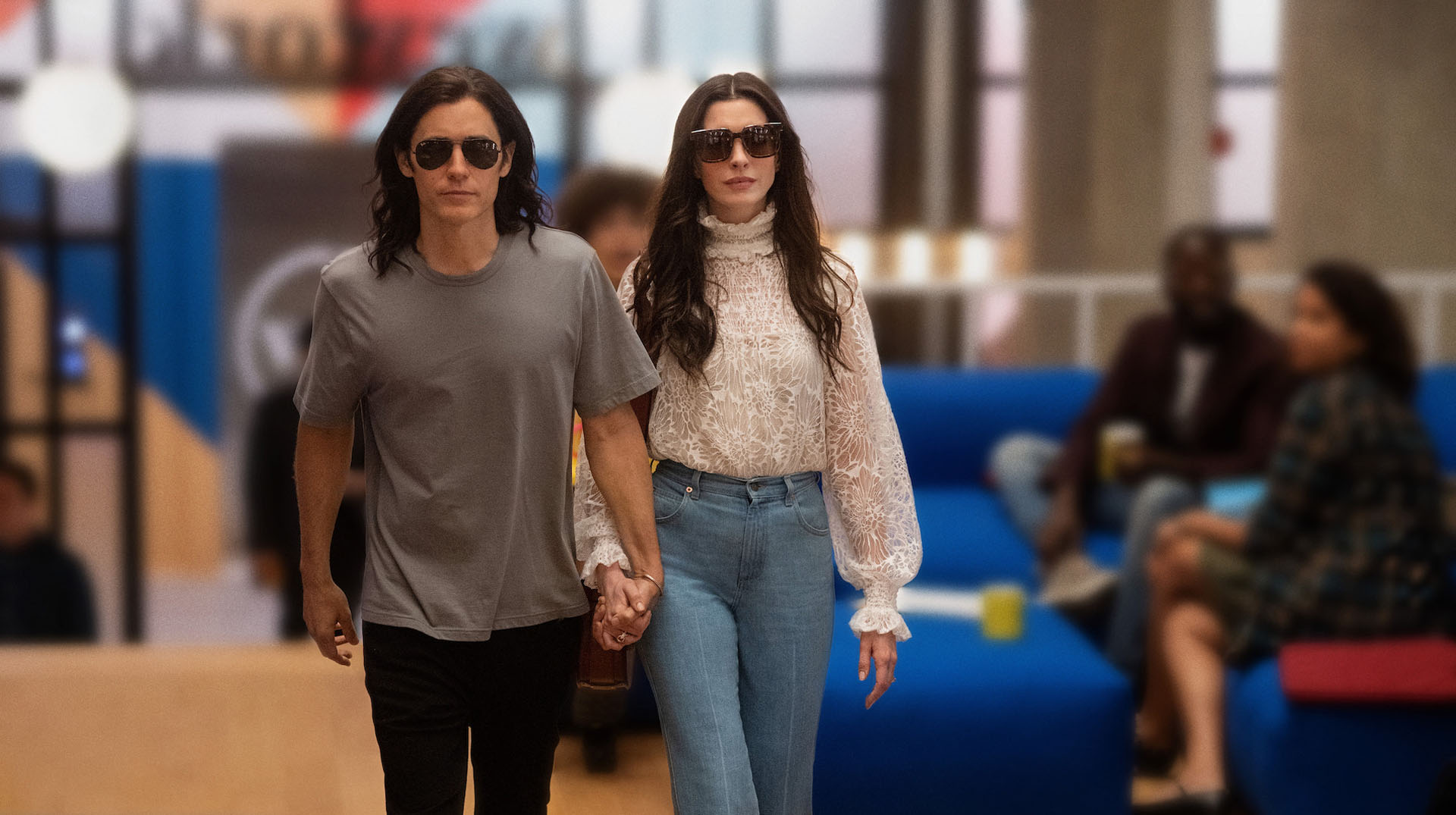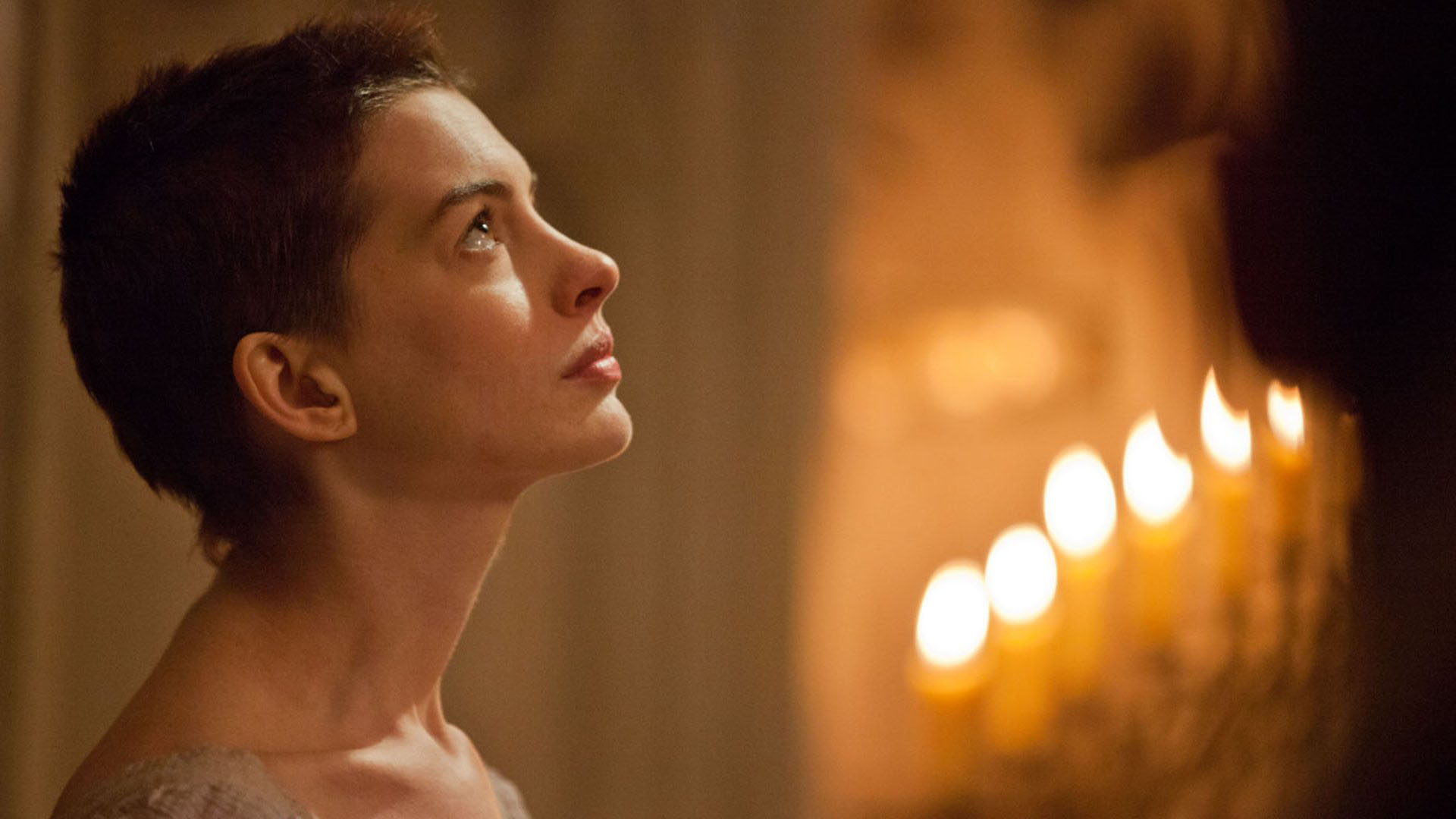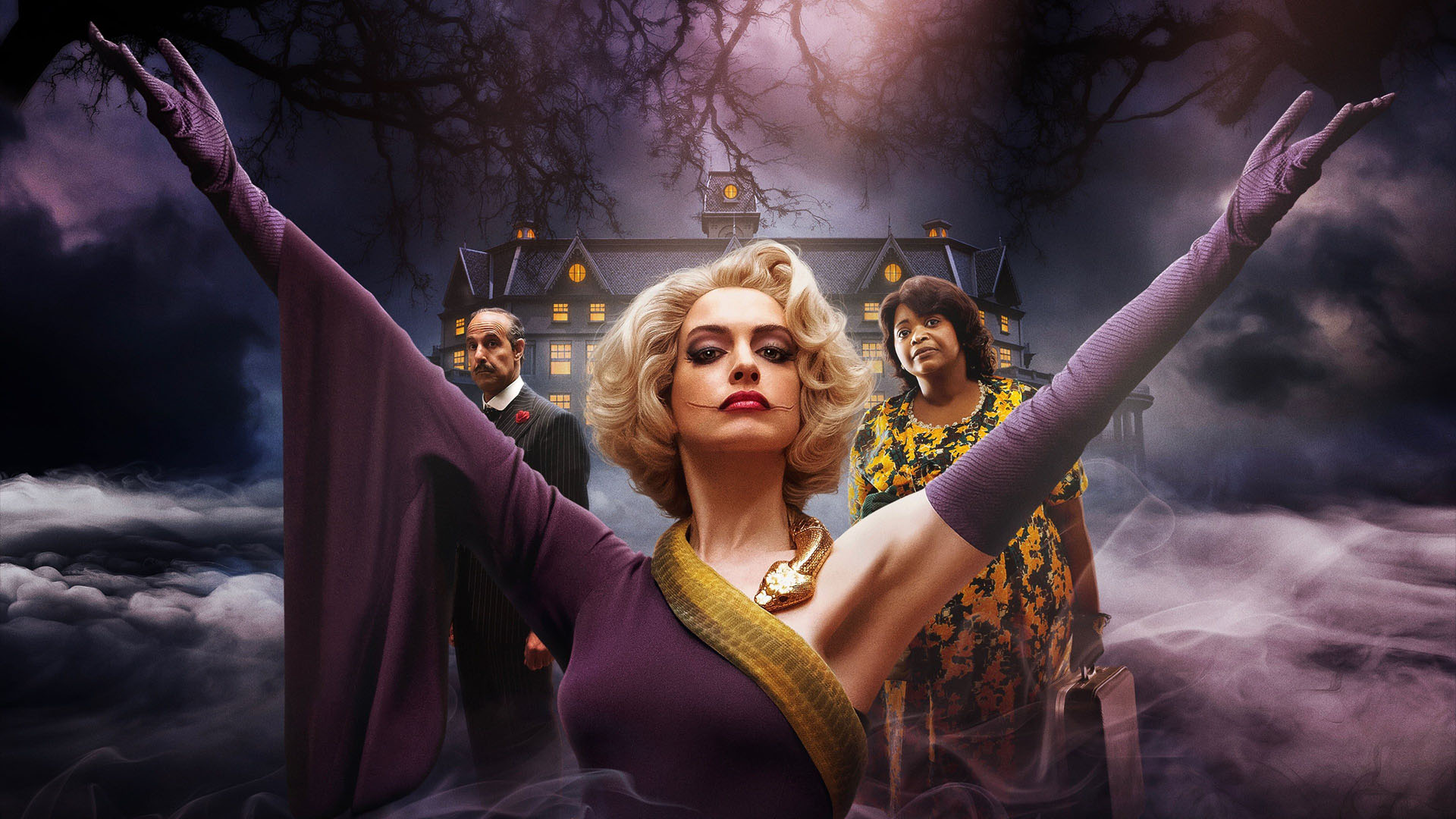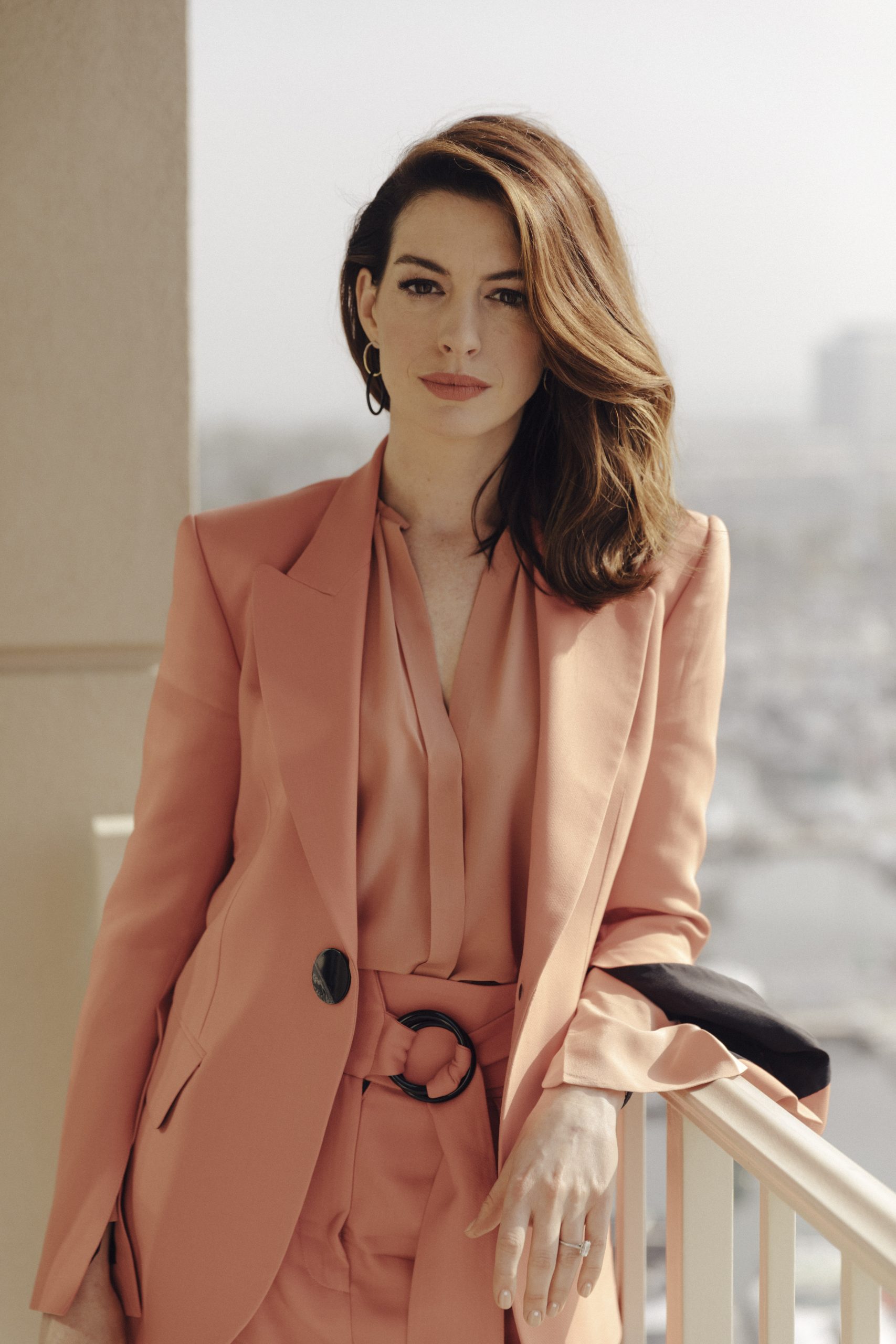THE VERSATILE OSCAR WINNER HAS COME A LONG WAY SINCE HER DISNEY PRINCESS DAYS, MOST RECENTLY TACKLING THE ROLE OF THE AMBITIOUS WIFE OF THE GENIUS-YET-GREEDY FOUNDER OF WEWORK IN NEW APPLE TV+ DRAMA WECRASHED
BY RHIANNA JONES
We’re selling an experience!” exclaimed Anne Hathaway in her latest role as the founder of WeWork’s wife and confidante Rebekah Neumann. The experience being the meteoric rise and fall of WeWork’s behemoth business model, explored across AppleTV+’s new eight-episode docu-series WeCrashed, told through the lens of the power couple at the heart of it all. Rebekah is married to the visionary albeit neurotic and narcissistic Adam Neumann (played by Jared Leto), and their turbulent dynamic implodes just as powerfully as WeWork’s whirlwind expansion and colossal $1.9 billion loss. At its core, acting is also “selling an experience.” Over a 20-year career, the Brooklyn-born Hathaway has made a name for herself selling fantasy from fairytales to superheroes (she took on the iconic role of Cat woman in 2012’s The Dark Knight Rises) and became a revered choice in seducing audiences to experiences outside their own. In WeCrashed, she ventures into new territory, tackling the intoxicating rollercoaster of female genius, greed, and glory in a disillusioned reality.

Hathaway’s character helped plant the seeds of the WeWork dream, an idyllic antidote to corporate America’s cubicle landfills in a growing world of digital nomads and start-ups. In the trailer Rebekah advises her husband in an intimate moment of distress, “When were you happiest? Make a business out of that feeling.” And thus, the monstrous brainchild of WeWork was born. As Adam’s original manifester and muse, Rebekah knights herself “Chief Branding Officer,” architecting WeWork’s public image from day one, and most infamously asserting that “WeWork’s role is to elevate the world’s consciousness.” Comparing the couple’s shiny co-working empire to human enlightenment highlights just how out of touch their once well-intentioned innovation becomes, the exact notion that attracted Hathaway to the role.

In a web interview with junket king Jake Hamilton, Hathaway said, “What attracted me to this project was the Fyre Fest documentary. I asked myself, ‘What’s the story’s larger place in this moment? What is it saying?’ Fyre Fest shows how a group of people can really get together and ignore reality in pursuit of a dream. This is happening all over the place right now. I didn’t seek to answer it, but there’s a real current and electricity to this project.”

In her performance, Hathaway does investigate the lengths a human will go to pursue their dreams. The timing of the series’ release is equally topical, in an era where the “American Dream” we’ve been programmed to chase has been flipped entirely on its head. Fresh off the pandemic, rife with anxiety, stress, and uncertainty around work, we’ve entered the age of the Great Resignation, where society is breaking up with its live to work habits at large and seeking alternate and virtual realities for refuge. As such, tapping her background in Buddhism and business, Rebekah’s Goop adjacent neo-spiritual approach to entrepreneurship fueled her husband’s self-image as a “supernova,” clinching her personal dream of being the ultimate muse. Over time, however, her musedom transforms from triumphant to tarnished, and hell hath no fury like a woman scorned, bankrupted, and canceled all at the same time.
Playing a woman knocked off her throne is a far cry from Hathaway’s breakout role in 2001, becoming an industry darling after three fairy tale themed films in a row: Disney’s Princess Diaries 1 and 2 and Ella Enchanted.

Though her megawatt smile, pageant hair, and glittering personality could suggest otherwise, Hathaway was determined to avoid the “princess pigeonhole,” and she quickly forayed into more mature and cerebral films like Havoc and Brokeback Mountain (both 2005). In a 2004 Thought Co Interview, she said, “In terms of the princess role, there is only so long that you can play those as a young lady before you start feeling really ridiculous. They are so much fun to do; I figure I might as well get the most out of them while I can. Then [I’ll] go off and play all the drug addicts and the prostitutes, and all the good ones you win Oscars for a little bit later on.” Over her career she has followed this exact path, with an Oscar, Emmy, and countless other accolades under her belt. Her first Academy nomination came in 2008, when she played a recovering addict with a mental illness in the drama Rachel Getting Married. It wasn’t until two years later that she won, though, earning the Academy Award for Best Supporting Actress for her role as Fantine, a tuberculosis stricken prostitute in romantic musical Les Miserables.

Hathaway’s expansive filmography spans rom-coms and fairytales to comedies and superhero fantasies, making her the perfect choice for a role blending femme fatale and woman unhinged. Generally a woman’s fall from grace is seen as a failure, but Hathaway’s best performances are in her character’s biggest pitfalls. But such is the game of life, where our largest lessons are often learned in our lowest points. In her interview, even as such a high-powered star, she’s asked how it feels when she’s told “no.” Her reply: “There’s an initial sting, but the right part finds the right actor. I’ve had a lucky and fortunate ride, now I focus on being grateful, even when things don’t go my way.”

